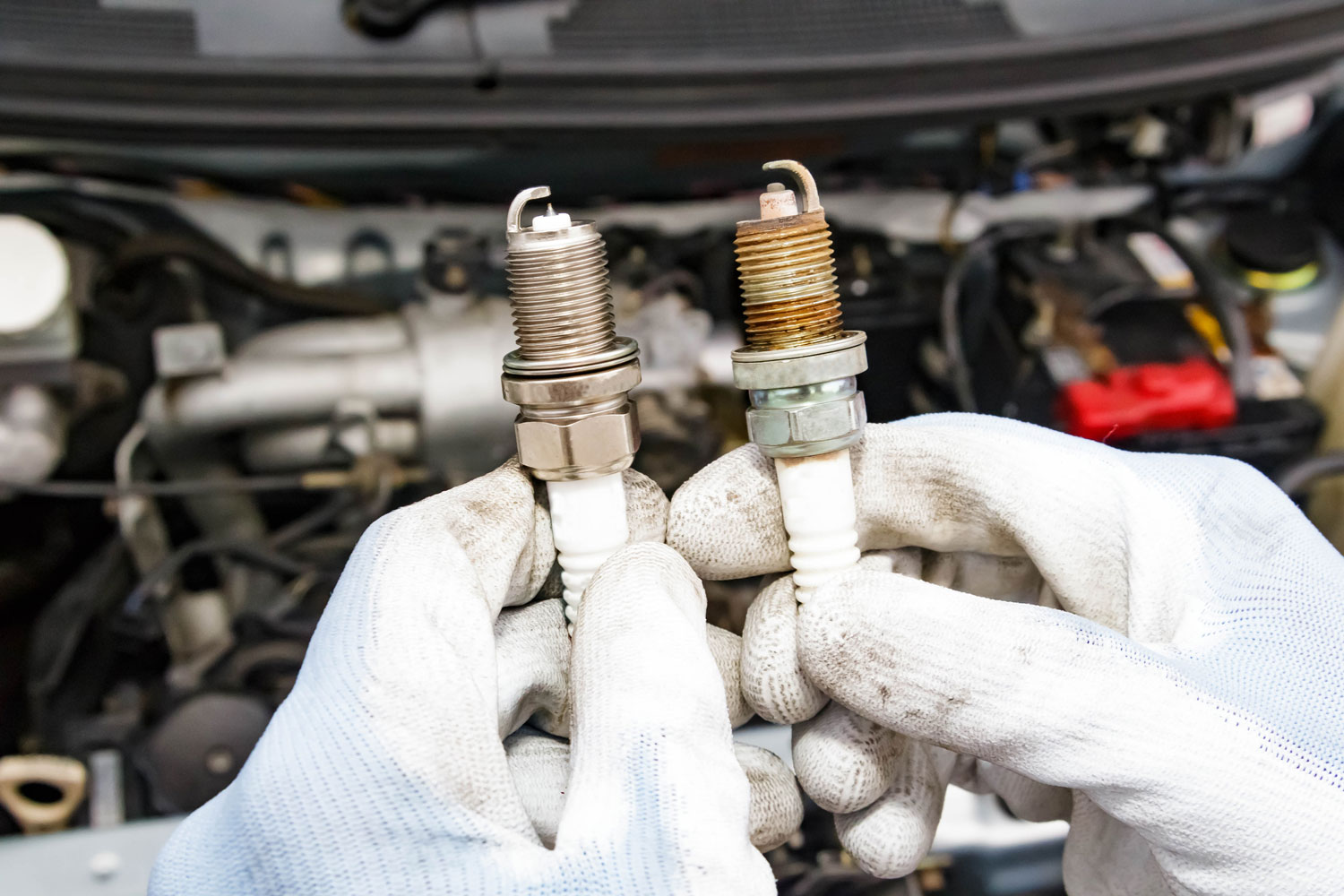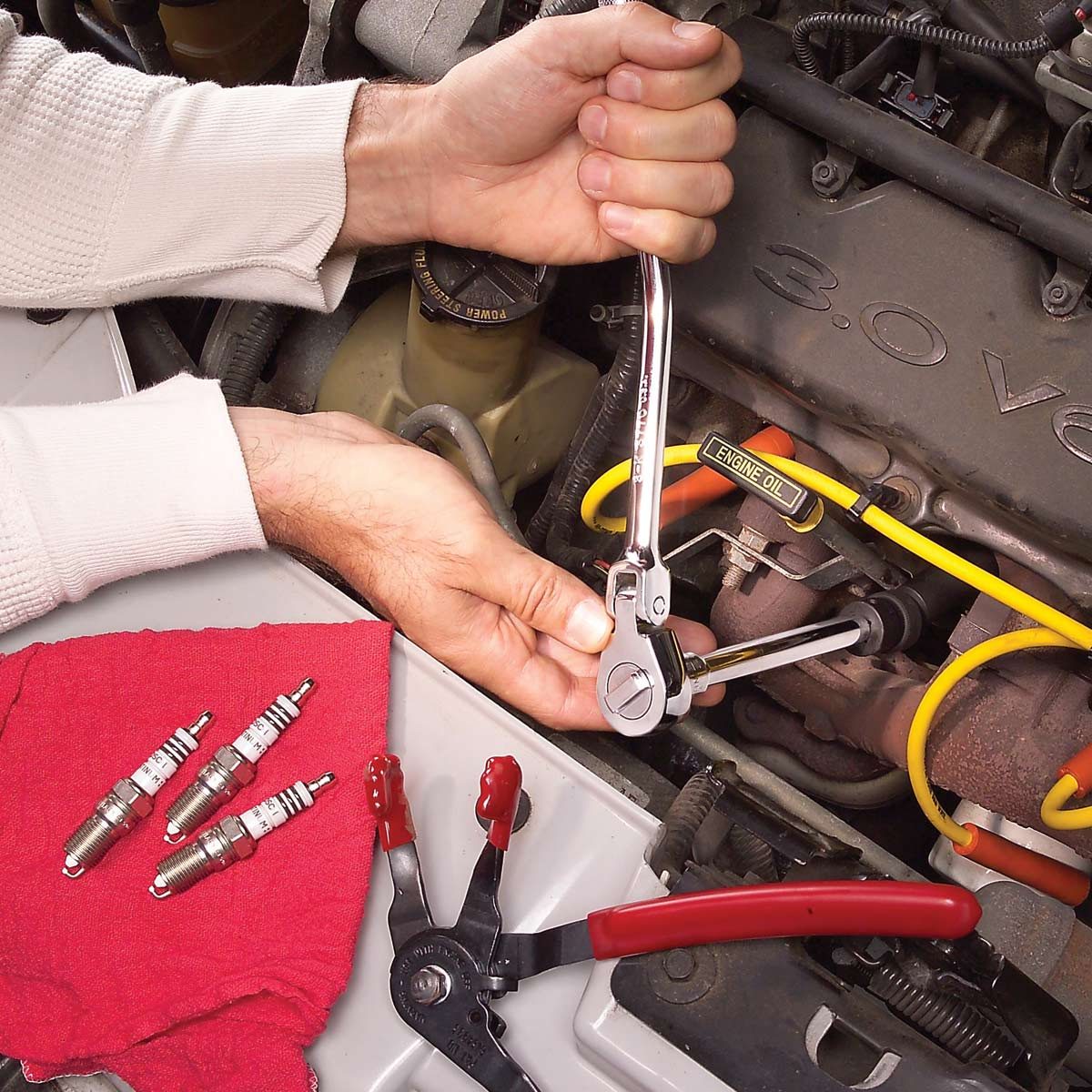Replacing spark plugs is essential for car maintenance. It ensures your engine runs smoothly.
But how long does it take to replace spark plugs? The time it takes to replace spark plugs can vary. It depends on your car model and your experience level. For a professional, it might take 30 minutes to an hour.
For a beginner, it could take longer. Understanding the process helps you manage your time better. Replacing spark plugs is a straightforward task. With the right tools and a bit of patience, you can do it yourself. This guide will walk you through the steps. So, grab your tools and let’s get started. Replacing your spark plugs is easier than you think!

Credit: gtrtech.blogspot.com
Introduction To Spark Plug Replacement
Spark plugs are small but vital parts of a car. They ignite the fuel, which makes the engine run. Over time, spark plugs wear out. This can cause the car to run poorly. Spark plug replacement is important for good engine health.
Importance Of Spark Plugs
Spark plugs create the spark that starts the engine. Without them, cars won’t run. Worn-out spark plugs can lead to poor fuel efficiency. They can also cause engine misfires. This can damage the engine over time. Replacing them regularly keeps the engine running smoothly.
When To Replace Spark Plugs
Most cars need new spark plugs every 30,000 miles. Some high-performance plugs last longer. Check the car’s manual for the exact schedule. If the engine runs rough, it might be time to check the spark plugs. Regular checks can prevent bigger problems later.

Credit: www.capitalone.com
Tools And Materials Needed
Replacing spark plugs requires a ratchet, spark plug socket, and extension. Also, have a torque wrench and dielectric grease on hand. These tools help ensure a smooth and efficient replacement process.
Essential Tools
Basic tools are needed to replace spark plugs. A spark plug socket wrench is a must. This tool helps to remove and install the plugs. A ratchet and extension bar are also key tools. They make the job easier by providing extra reach. A torque wrench ensures proper tightening. It prevents damage to the plugs and engine. A gap gauge checks the gap of the plugs. Correct gap ensures optimal performance.
Recommended Materials
Having the right materials is crucial. New spark plugs are required. Choose plugs that fit your vehicle. Anti-seize lubricant helps prevent the plugs from sticking. Use dielectric grease for the spark plug boots. It improves electrical connection and prevents moisture. A clean rag or towel is handy. It helps to wipe dirt and oil from the plugs and engine. Always have safety gloves. They protect your hands from cuts and burns.
Preparation Steps
Replacing spark plugs can take about 30 minutes to 2 hours. Preparation steps include gathering tools, referring to the vehicle manual, and ensuring the engine is cool.
Safety Precautions
Always make sure the engine is off. Let it cool down first. Never touch hot engine parts. Wear gloves to protect your hands. Use safety glasses to protect your eyes. Avoid wearing loose clothes. Tie back long hair. Keep tools organized and close by. Always work in a well-lit area. Ensure good ventilation. Be aware of your surroundings. Safety first!
Gathering Supplies
Get the right spark plugs for your car. You need a socket wrench. Use a spark plug socket. Get a gap gauge to check the gap. You might need an extension bar. A ratchet will help you turn the wrench. Have a torque wrench to tighten plugs properly. Get some anti-seize lubricant. A spark plug boot puller can be handy. Keep a clean rag for wiping parts. Have a container for old plugs. Gather all tools before starting.
Accessing The Spark Plugs
The spark plugs are usually found on the engine block. Each cylinder has its own spark plug. Check your car manual for the exact location. The manual will show you a diagram. This will make it easier to find.
Engine covers can hide the spark plugs. Use a wrench to remove the screws. Lift the cover gently. Be careful not to damage any parts. Keep the screws safe. You will need them later. Now you can see the spark plugs clearly.
Removing Old Spark Plugs
Replacing old spark plugs usually takes about 30 minutes to an hour. This depends on your car’s make and model. Regular maintenance ensures better engine performance and fuel efficiency.
Loosening Spark Plugs
Use a spark plug socket and ratchet to loosen each plug. Turn the ratchet counterclockwise. Be gentle to avoid breaking the plugs. Once loose, use your fingers to unscrew them completely. This step might take some time. Be patient.
Inspecting Old Plugs
Check the old spark plugs for signs of wear. Look for oily or blackened plugs. These signs indicate engine issues. Compare the old plugs to new ones. This helps you see any differences. If the old plugs look bad, you might need engine repairs. Clean the spark plug holes before putting in new plugs.
Installing New Spark Plugs
Replacing spark plugs usually takes about 30 minutes to an hour. This depends on your car model and your experience level. Quick and straightforward for most vehicles.
Proper Installation Techniques
Properly installing new spark plugs is crucial. Clean the area before starting. Remove old plugs carefully. Use the right tools to avoid damage. Insert new plugs by hand first. This prevents cross-threading. Tighten them using a torque wrench. Follow the manufacturer’s specifications. Over-tightening can cause damage. Under-tightening can lead to loose plugs. Both can affect engine performance. Ensure a snug fit without forcing it.
Ensuring Correct Gap
The gap is the distance between electrodes. This affects spark efficiency. Use a gap gauge to measure it. The correct gap size is vital. Check your car’s manual for the right size. Adjust the gap if needed. Use a gap tool for precision. Avoid damaging the electrodes. A proper gap ensures a strong spark. This improves engine performance and fuel efficiency.
Reassembling And Testing
Carefully put the engine covers back in place. Ensure all clips and screws are tight. This step secures the engine parts. Double-check for any loose components. This prevents future issues.
Turn the key to start the engine. Listen for any unusual sounds. The engine should run smoothly. If it doesn’t, check the spark plugs again. Make sure they are installed correctly.

Credit: www.familyhandyman.com
Common Mistakes To Avoid
Over-tightening spark plugs can damage the threads. This might cause the plug to stick. It’s hard to remove later. Always follow the torque specifications. Using a torque wrench helps. It ensures the right tightness. Never use too much force. It can crack the plug or the cylinder head.
The spark plug gap is crucial. A wrong gap can cause misfires. This leads to poor engine performance. Always check the gap with a feeler gauge. Make sure it matches the car’s manual. If the gap is wrong, adjust it carefully. The engine will run smoother and last longer.
Maintenance Tips
Replacing spark plugs typically takes about an hour, depending on your vehicle and skill level. Regular maintenance ensures smooth engine performance and improved fuel efficiency.
Regular Inspection
Regular inspection of spark plugs is important. Check them every 10,000 miles. Clean dirt and debris from spark plugs. This helps them work better. Replace old or worn-out spark plugs. This can prevent engine problems. Pay attention to any signs of damage. Look for cracks or wear. This can save you money in the long run.
Choosing Quality Spark Plugs
Choose quality spark plugs for your car. They last longer and work better. Look for trusted brands. Good spark plugs improve engine performance. They help your car run smoothly. Check your car manual. It may recommend specific spark plugs. Follow these recommendations for best results. This ensures compatibility and optimal performance.
Conclusion
Replacing spark plugs is a straightforward job. It usually takes about an hour. Regular maintenance keeps your car running smoothly. Don’t ignore worn-out spark plugs. They affect your engine’s performance. Schedule regular checks. Stay proactive with car care. It saves you money in the long run.
Your car will thank you. Happy driving!
